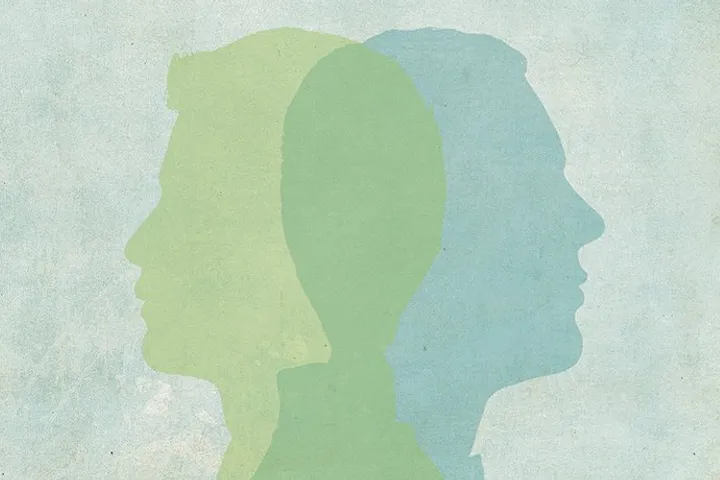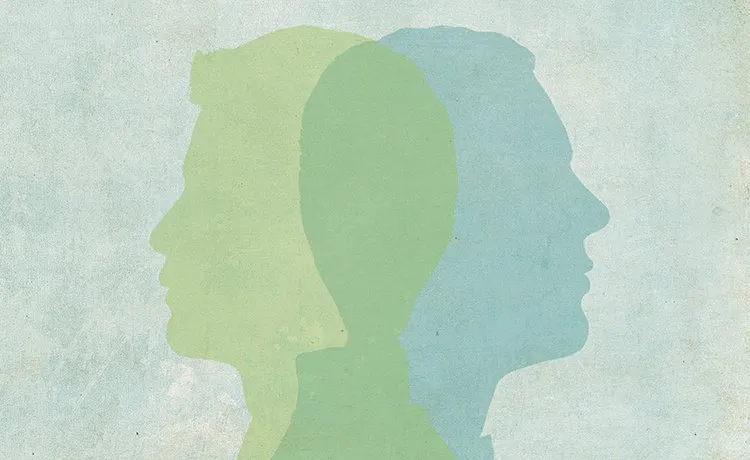Perhaps you're among the lucky ones who have never considered abandoning God. Perhaps in your relationship with Christ, there's just one dancer on stage—faith moves with the ease of a prima ballerina soloing in the spotlight. For others of us, the dance takes a different form, the choreography morphing through the years of inconsistent light. Two dancers instead of one, we experience the interchange of belief and unbelief, as one steps into focus and the other crouches in the shadows. And then again as one dancer clashes with the other, over and over, into what often becomes an affliction of predictable chaos.

When a Christian feels distant from God, unconfessed sin is a common diagnosis. Other times it might be general malaise or boredom—what the ancients called acedia—or else laziness, also known as sloth. In either case, the prescription is the same. Well-meaning pastors and friends suggest that some old-fashioned discipline is in order—the afflicted party simply needs to buckle down and get over himself.
“Are you sure you’re spending quality time in the Scriptures?” one friend asks.
“You just need to pray consistently—time to get on your knees, brother,” another suggests.
“The problem is that you’re not serving enough. If you’re just consuming, your faith is bound to stagnate,” still another says.
The remedies are not only plentiful but also sound enough in their formulation. What could possibly be bad about more time spent reading the Bible, praying, or serving others, among many other worthwhile pursuits? Yet what many people fail to appreciate about their struggling loved ones and fellow churchgoers is that unbelief is often painful for those who desire an authentic experience of God. And in many cases, the one they’re attempting to help has already tried the usual methods many times over, to no avail.
The experience of unbelief is defined by contrast and cannot be resolved by sheer force.
It’s natural to think what a person is or isn’t doing may be affecting his or her sense of connection to the Lord. But suppose that there’s no apparent pattern of unconfessed sin. Or that the person does, in fact, spend a considerable time reading Scripture. Suppose that they’re as disciplined as discipline gets and yet unbelief still spreads across the heart’s topography like a storm choking the fields of sunlight.
Maybe you’re like me, and though you’ve gone through prolonged seasons of absence, you’ve also experienced a faith that was alive and compelling. An undeniable sense of presence and purpose. Moments that made the painful periods of unbelief, of doubt and distance, seem shorter. Moments that, when compared with walking in the cool of the day with the Lord, seem so brief as to have been dreams. And yet, when the opposite is true, the pain can feel constant. Sometimes acute, and sometimes like walking a very long way with no shoes. If only we could find some shoes. If only the ground were softer and the miles fewer.
The experience of unbelief is defined by contrast and cannot be resolved by sheer force. Where the good times carry an air of inevitability and ease, where time seems to all but disappear, the hard times are the opposite. In seasons where we perceive God’s absence, we feel every minute of isolation.
“Stop striving and know that I am God,” says Psalm 46:10, a verse I memorized as a child and have never forgotten. The verse has come to mind countless times over the decades, taking on new meaning in each era of my becoming. But only recently have I begun to think of it not as a corrective for misplaced zealotry or doing things in one’s own strength, but as a promise. It could be read something like this: “Stop trying—stop grinding yourself down and burning out—and at last, you’ll discover for yourself who I am.”
Too often we’re so focused on outcomes that we fail to appreciate the process of growth, which includes all kinds of moments and experiences—not just those that resemble our ideals concerning the life of faith.
For those who somehow feel as though they’ve approached a decisive moment to abandon God or stay with Him—and for those compelled to help someone they know in that place—I’d like to propose that the best advice is simply this:
Stop.
Wait.
Don’t do anything rash.
Stop doing anything at all for a time.
Stop wringing your hands; stop your mind’s rumination.
Be gentle with yourself and don’t force anything.
Be here now in this place, accepting where you are.
Let go of all expectations.
Humbly ask for God’s help.
The above line of reasoning relies on trust in the goodness of God and a belief in His constant presence with us. All that’s required is openness and patience, giving up on the notion that anyone is more responsible than God for perfecting His work in us (Phil. 1:6).
In the mystery of God’s economy, we simply cannot know the value or even the necessity of our struggles.
Too often we’re so focused on outcomes that we fail to appreciate the process of growth, which includes all kinds of moments and experiences—not just those that resemble our ideals concerning the life of faith. Thomas’s doubt was an important and productive part of His relationship with Christ, as was Peter’s denial. The rich young ruler had to walk away before he could take steps forward. Nicodemus’s faith needed the cover of night before he could embrace the day’s brilliance. In the mystery of God’s economy, we simply cannot know the value or even the necessity of our struggles.
More and more I think that, for each of us—regardless of where we find ourselves on the spectrum of belief and unbelief—the best way forward is not obviously forward at all. Rather, it’s a kind of active stillness where we learn to wait on the Lord. Where we call out, along with the demon-possessed boy’s father, “I do believe; help my unbelief!” (Mark 9:24). Where we sit and wait for the Lord to pass by and show Himself to be exactly who we hoped He was all along.





